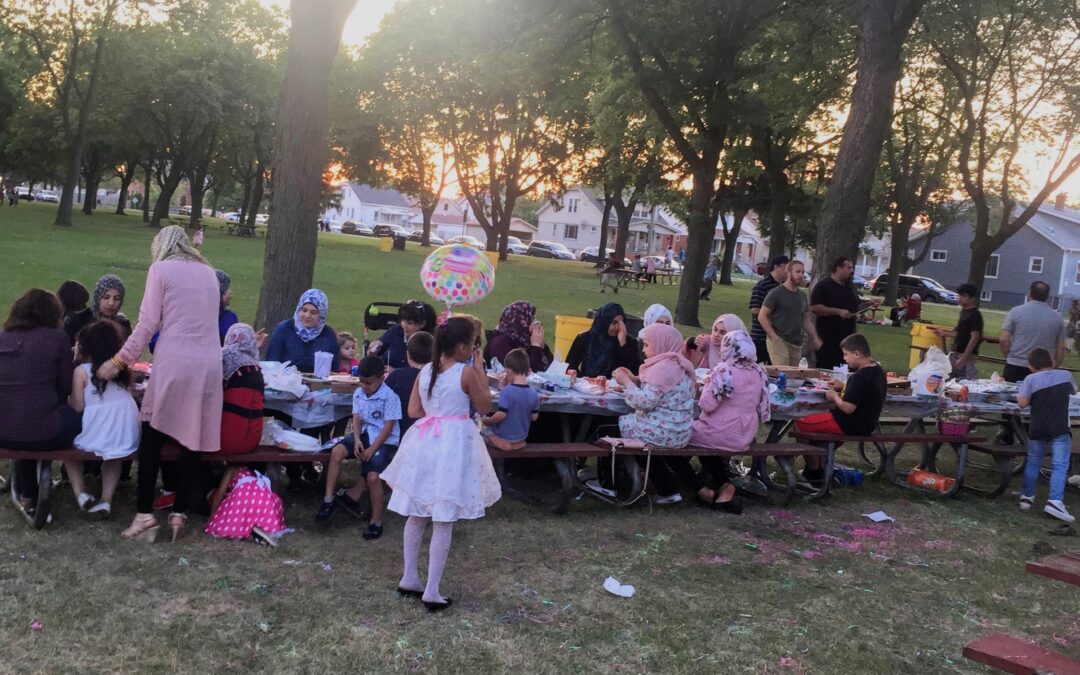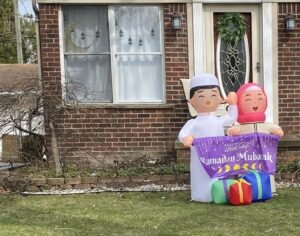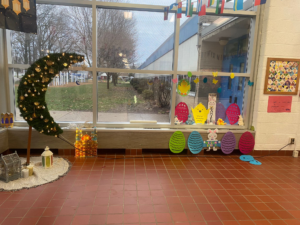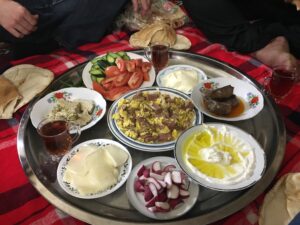
Praying for Light in the Darkness
Loving Muslims Well During Ramadan
When living in a secular, Muslim-majority country, we knew about Ramadan and realized that many observed it. However, because the Eastern European city we lived in was predominantly Catholic, it seemed that it was a minor blip on the radar.
Now that we live in a Muslim-majority city in North America, we can more clearly see the impact of Ramadan. Ramadan is the ninth month in the Islamic calendar and is a special time to hear from Allah. The month is meant to commemorate when Mohammed first received his revelations from Allah. It is spent by fasting from food, water (or any drink), smoking, sexual relations and several other things from sun-up until sundown. Once the sun goes down, many will attend a special prayer time at the mosque and then go and break their fast — first by eating dates and then feasting on other things, like various rice and meats, stuffed grape leaves and lots of bread.
It is during this time of Ramadan that many Muslims believe that their good deeds are multiplied, their prayers are multiplied and they will cleanse their bodies of impurities to reset it for Allah’s will for them. Since Islam is a works-based religion, this time is very important to store up extra “credits” with Allah.

In our Muslim-majority city in North America, inflatable yard decorations are popping up for Muslim holidays.
And since Muslims can only eat during sundown, many families will stay up late and wake up early to get in extra meals before dawn. This means that people get little sleep during the month. Because the Islamic calendar is based on the lunar cycles and are either 29 or 30 days, the beginning and end of Ramadan move forward 11 days every year, compared to our calendar. Though not all would admit it, some of my friends are quite thankful that Ramadan is now starting to fall during our winter months, compared to summer when it doesn’t get dark until nearly 10:00 pm!
The most interesting thing to see is the tension between Ramadan hours and “normal life hours.” Just because someone slept 3 hours each night for the month of Ramadan doesn’t mean that they can skip out on school or work. And yet, many Muslim-owned businesses –particularly restaurants and cafes — shift their hours from 9:00-9:00 to 5:00-5:00. It is fascinating to see much of life shift here in our city.

This picture was taken in our kids’ elementary school as it was decorated for Ramadan.
The most visible reminders of Ramadan are found in our neighborhood and kids’ schools. Since moving here in 2017, we have seen an increase in yard and home Ramadan decorations, particularly a new fad of having Ramadan or Eid trees. Another interesting American take on Muslim holidays are inflatable yard decorations. People here are trying to figure out how to best observe their holiday when this is not really the Middle East and it’s not your typical Midwest city. It’s the Middle West, as we like to call it.
What we have also found is that there are a lot of things you can aim to do to make the most of this season for your Muslim friends and neighbors.
Do:
- Ask many questions about their practices. It is OK to be curious and seek to see how the actions reflect what they are seeking from Allah.
- Do pray for your Muslim friends. Pray that YAHWEH would speak through their efforts to earn salvation by revealing to them the Gospel of grace found in Jesus.
- Do share an iftar (fast-breaking meal) with someone this year.
- Give gifts to your Muslim neighbors or friends at the end of Ramadan, during the three-day long holiday called Eid al-Fitr.
And certainly look for ways to share the Gospel. I am grateful that the Gospel tells me that it is because of what Jesus did, I can have hope. A relationship with God also tells me, that as a result of what He did, I must pray (to talk and listen to God), I must be loving, kind, generous (as well as other things) and that I must read His word to best know who He is and what that means for me and those around me.

Sharing an iftar (fast-breaking meal).
The Gospel is complete and in it, we lack nothing. We have hope and the motivation (and command) to do good. That “good” does not earn our salvation but is a result of it! This is the Good News we want to proclaim to our friends here and the Good News you can proclaim to your Muslim friends this Ramadan where you are.
We invite you to join us in praying for Muslims around the world during Ramadan. Please visit gponline.org/wp-content/uploads/2025/02/Ramadan-Prayer-Guide-2025.pdf to follow a daily prayer guide.
